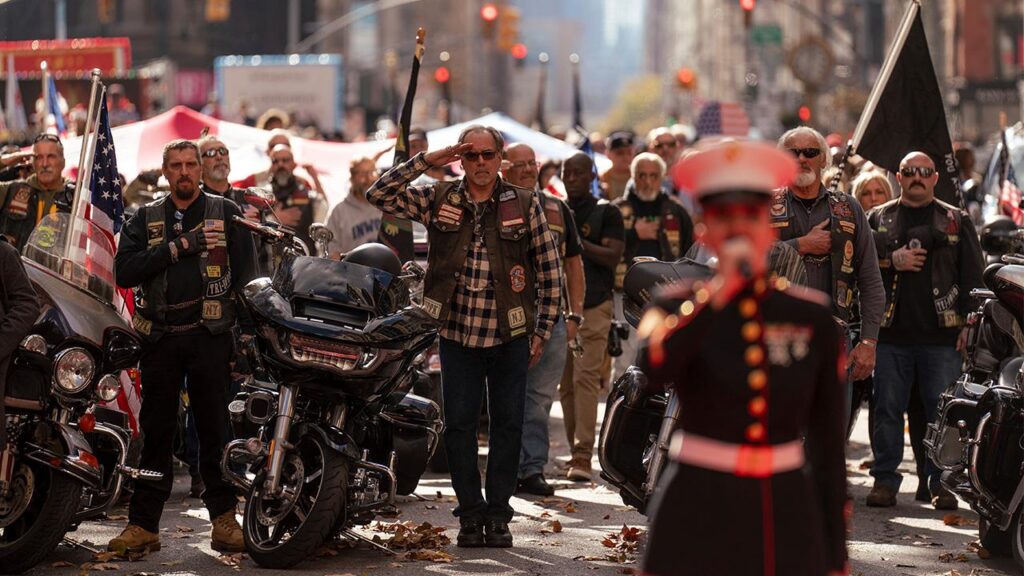Addressing the Challenges Faced by Veterans in New York City: A Call for Concrete Action
Housing Instability Among Veterans: Navigating Bureaucratic Obstacles
New York City, often celebrated for its resilience and opportunities, continues to fall short in providing stable housing for many of its veterans. Despite public commitments, a significant number of former service members encounter prolonged delays and complex procedures when seeking veteran-specific housing assistance. This bureaucratic maze often leaves veterans, especially those with disabilities or mental health issues, at risk of homelessness or precarious living situations during their transition to civilian life.
Several critical issues exacerbate this housing crisis:
- Protracted application timelines: Veterans frequently endure waits extending beyond three months before receiving housing aid, increasing their vulnerability to eviction or unsafe accommodations.
- Confusing eligibility criteria: Ambiguous requirements and inconsistent documentation requests deter many veterans from applying or result in wrongful denials.
- Insufficient staffing in veteran support offices: Limited personnel contribute to backlogs and diminish the quality of assistance provided.
| Challenge | Effect | Suggested Solution |
|---|---|---|
| Application Backlogs | Over 90-day wait times | Boost staffing and implement digital application systems |
| Eligibility Ambiguity | Approximately 30% of applicants wrongly denied | Clarify guidelines and enhance outreach efforts |
| Limited Service Capacity | High volume of unresolved cases | Expand office resources and provide specialized training |
Insufficient Mental Health Support for Veterans in NYC
Despite ongoing assurances from city leadership, mental health care tailored to veterans remains critically under-resourced. Many veterans report extended wait times, limited availability of qualified mental health professionals, and a scarcity of programs addressing the distinct psychological challenges stemming from military service. Recent data indicates that nearly 40% of veterans in New York City seeking mental health assistance experience delays exceeding one month, a period during which timely intervention is vital to prevent crises such as homelessness or suicide.
Key contributors to these deficiencies include:
- Chronic underfunding of veteran mental health initiatives.
- Poor coordination between the Department of Veterans Affairs (VA) and local healthcare providers.
- A shortage of culturally sensitive clinicians trained in military-related trauma.
| Service Type | Average Wait Time | Availability |
|---|---|---|
| One-on-One Therapy | Approximately 5 weeks | Limited slots |
| Group Therapy Sessions | About 3 weeks | Moderate availability |
| Crisis Support | Immediate response | Restricted to 24/7 hotline services |
Employment Support Programs: Bridging the Gap for Veteran Workforce Integration
While New York City has launched various employment initiatives aimed at veterans, many programs struggle to meet the nuanced needs of this population. Challenges such as limited funding, inadequate outreach, and rigid program structures hinder effective job placement and career development for veterans transitioning to civilian employment.
Obstacles faced by veterans in employment programs include:
- Insufficient customized training: Programs often fail to translate military skills into civilian job market requirements.
- Inadequate mental health support: Lack of resources to assist veterans in managing workplace reintegration challenges.
- Fragmented collaboration: Poor coordination between government agencies and private sector employers limits opportunities.
| Program | Placement Rate | Annual Funding | Main Challenges |
|---|---|---|---|
| Veteran Career Connect | 35% | $1.3M | Limited employer engagement |
| Transition to Work Initiative | 20% | $900K | Rigid training schedules |
| SkillBridge NYC | 29% | $1M | Insufficient mental health integration |
Driving Real Change: Policy Overhauls and Grassroots Efforts
To genuinely support veterans, New York City must move beyond promises and implement comprehensive reforms that dismantle systemic barriers. Priorities should include simplifying healthcare access, expanding affordable housing availability, and tailoring employment programs to veterans’ unique experiences and needs. Without decisive action, the city risks perpetuating a fragmented and ineffective support system.
Community-led initiatives are equally vital in filling service gaps. Partnerships among nonprofits, veteran advocacy organizations, and municipal agencies can create responsive networks that provide immediate and practical assistance. Successful programs often feature:
- Peer mentorship: Veterans supporting fellow veterans through shared experiences.
- Mobile outreach units: Bringing services directly to underserved neighborhoods.
- Veteran-designed skills workshops: Training programs developed by veterans for veterans.
| Initiative | Outcomes | Current Status |
|---|---|---|
| Veteran Healthcare Enrollment Support | 30% increase in veteran healthcare access | Ongoing |
| Citywide Veteran Employment Fairs | Over 500 veterans placed in jobs in Q1 2024 | Active |
| Affordable Housing Voucher Program | Allocation of 120 housing units | In Planning |
Looking Ahead: Commitment Beyond Words
As New York City continues to address the multifaceted needs of its veteran community, bridging the divide between pledges and measurable outcomes is imperative. Achieving this requires unwavering dedication, enhanced transparency, and strategic initiatives from city leaders. Only through prioritizing effective, veteran-centered support can New York honor the sacrifices made by its service members and uphold the values it espouses. Failure to act decisively risks not only neglecting veterans but also eroding the city’s foundational principles of justice and opportunity.













